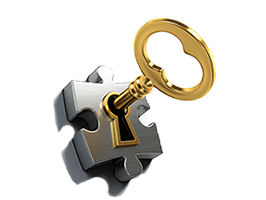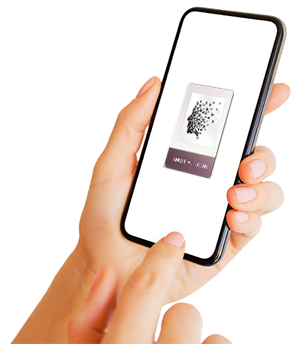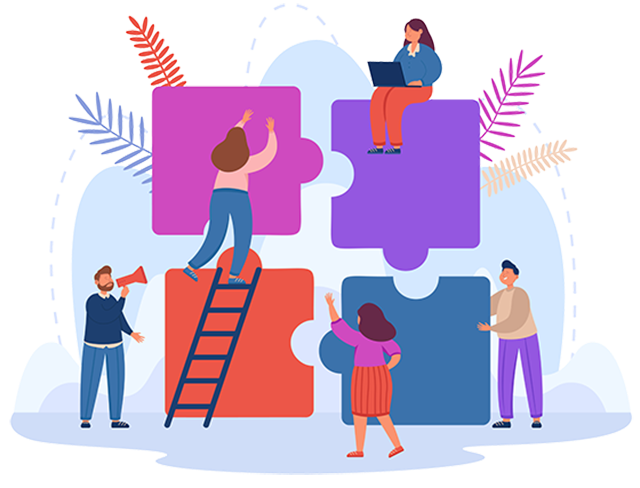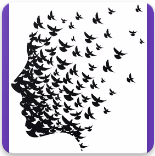K N O W L E D G E
Effects of Repression
Information about the effects of repressions.
Effects of Repressions – Background
8 min reading time.
Here you will find background knowledge about repressions. If you want to treat them, visit this page.
Effects of the repressed
“We strive more to avoid pain than to gain pleasure.” Sigmund Freud
Repression helps us to survive injuries, conflicts and traumas and thus to survive infancy and childhood. It is an emergency function that enables us to survive emergency situations. But the repressions in the subconscious remain an alienated part of us and so repression is also pathogenic, because it is a psychological amputation whose effects have a massive influence and power over us. If we were to release the repression after the overwhelming situation where the repression set in, just as we do with physical injuries, this would not be a problem. But what do we do with internal wounds? Nothing at all. We just leave it at that, which is very problematic. With both internal and external wounds, the effects get worse and worse from time to time. With both external and internal wounds, the system tends to heal the wound. In the case of the inner wound, this healing consists of giving the affected person the opportunity to experience or accept the repressed parts again with the help of reincarnation.
The repressed begins to push
Repressions develop considerable effectiveness and dynamism. They begin to take on a life of their own and have a massive unconscious influence on us. They control us and are the source of our deepest motivations and drives. They make us unconsciously avoid things, they block, inhibit us and our qualities, sides, abilities, our sexuality, our love and compassion, our success, our feelings, relationships or our development, weaken our self-esteem and our well-being; make us overly angry or irritable, put us under tension, don’t let us calm down, pull us out of the moment, change our behavior without the people concerned being able to explain what is really going on, affect our self-worth and simply don’t let go of certain things. All these effects are there, but they only become conscious once they reach a certain threshold, and once they reach a higher threshold they become disruptive and then dysfunctional. If you have seen a severely traumatized person, you can see, even without being a psychologist, how strong and destructive these effects can be and what is meant when someone has lost access “to themselves”, to their self, to their vitality.
The psychodynamics of repression change as the child grows up. This is because after or with the first repressions, the child has built up a protective wall, a psychological armor and a mostly unrealistic ego ideal that is now strongly pursued. He now avoids the situations he already knows and fears, and a narrowed pattern of beliefs has developed.
Further effects
The effects of repression come with compulsion. The earlier the first traumas occur, the greater the disruption to early childhood development. Resolving repressions therefore gives freedom, awareness, energy and clarity. Repression also creates pressure. This is compensated for by the psyche, or rather by its various tactics that we are unaware of, e.g. thinking through the situation, finding other ways or possibilities, avoiding confrontations, thinking through and understanding fear triggers, discussing them with others. We can try to develop counterforces such as trust, courage, power, hope, faith and love and are thus able to accept fears more and more. However, deep fears, which are often activated, can also create more pressure and tension and therefore the compensation techniques must be expanded: These can be “major” avoidances, distractions, strong focus on pursuits such as a hobby, achievement or success, occupation, sports, alcohol, cigarettes or other drugs, or rituals.
Other important effects include the inhibition of growth and development. This is because repression also blocks and inhibits our development. Erich Fromm (1900-1980, German-American psychoanalyst, philosopher and social psychologist) said: “But the effect of repression is even more comprehensive. It restricts consciousness and openness to the world, and thus the original tendency in people to grow and mature. Freud ultimately observed a “loss of all free development of the soul’s powers” (Freud 1898a, 515). The result is a “fear of freedom” (Erich Fromm:“Die Furcht vor der Freiheit.”, 1941). Furthermore, we naturally limit or restrict ourselves with every repression. Therefore, with every repression, we lose more and more of our wholeness, our freedom and vitality and also become more and more alienated from ourselves and therefore spend more time thinking. Repression, not wanting to feel, also naturally leads to us feeling less and, as a result, each of these repressions makes life duller, duller, more monotonous and poorer in experiences. The more we do this, the more we need external experiences and events, phenomena and sensations to compensate, because we can no longer experience or perceive the sensations within. We need on the outside what we no longer have on the inside because we have repressed it.
Perfection, wholeness, energy and the associated contentment, calm and depth, being with oneself or even being oneself, “being in the moment” is thus increasingly pushed into the background, replaced by an inner emptiness that we try to fill and compensate for with all kinds of things on the outside. The more we reject, the more we lose our sense of wholeness, the greater the emptiness becomes and, conversely, the greater and stronger the distractions or compensations have to be. Let’s remember our early childhood, how carefree, simple and light, yet inwardly so full everything was. Everything was full of vitality, contentment and bliss. We lose this because the repressions block our self and our liveliness. The effects of repression pull and tug at us. They do not let us be, is a well-known phrase in trauma research. Conversely, dissolving the repressions also means regaining access to our aliveness, our self.
Re-enactments are also effects of repression. As long as the injuries and traumas from childhood are not healed, these situations will be experienced again and again in the present.
However, a major problem with the effects is that we do not recognize them as such. We are unaware of them. Freud already recognized that the unconscious is actually what determines most human actions. People are then no longer, to use Freud’s famous expression, “no longer masters of their own house.”
These findings also coincide with the well-known Dührssen study, which was responsible for psychotherapy becoming a health insurance benefit in 1967, after it was proven that patients treated psychoanalytically were significantly less (physically) ill than others in the years following therapy, which can save the health insurance companies a lot of money, even if it initially costs a lot. In short, the processing of many repressions also ensures fewer physical illnesses in the long term!
“At the core of every symptom, stress and illness are feelings and memories, traumatic perceptions buried in our subconscious.” Dr. Darren Weissmann, biologist, author
But the symptoms of repression are not there to hinder us, but to help us. In fact, they always contain an indication of what has been repressed. The symptoms are actually messages, wake-up calls to us, to show us what we need to work through. Because what or how should the psyche show a person that there is still something in the basement that needs to be dealt with?
Fortunately, there are now simple and convenient methods for thoroughly resolving repressions. If you want to do this, visit this page.
“Das Denken wird die Angst nicht überwinden, wohl aber das Handeln.”

Fear Therapy
Effective fear treatment in an app!
Effective content and techniques for treating fears/anxiety.
Thoroughly dissolve any fear, including the associated negative cognition/belief!
No direct confrontation (exposure) with the fear!
Also deals with individual cognitions and all other emotions such as shame, sadness, hate, anger, etc.
Buy the "Fear Therapy" app now for just 19.99 Euros!
Available in the Apple™ App Store or in the Google™ Playstore.


For all questions ...
... please do not hesitate to contact us. Whether it's a question of understanding, product details or questions about treatment.
We are happy to help!

“The highest happiness of man is liberation from fear.”
Walther Rathenau, (1867 - 1922), Politician, writer, industrialist 1922



